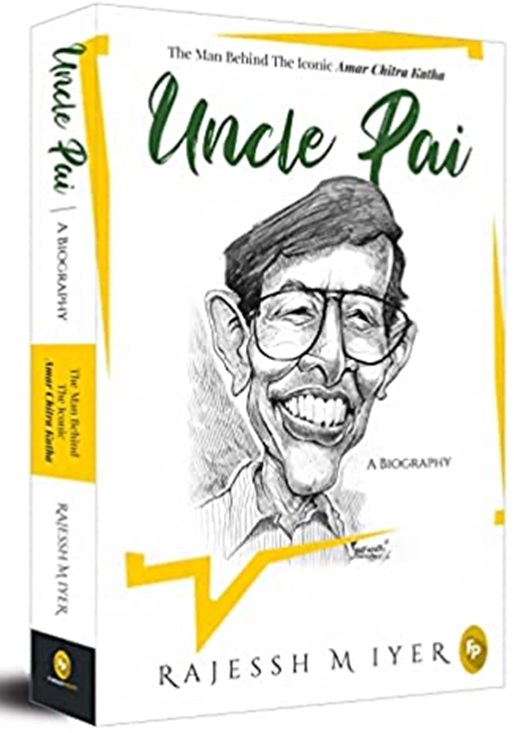If the children of India dream, let them dream of India.’
Anant Pai
On Anant Pai’s 90th birth anniversary, it is fitting for Rajessh M Iyer to have penned a homage to the life and work of the father of Indian comics in his biography Uncle Pai: The Man Behind the Iconic Amar Chitra Katha. From the Author’s Note to the Epilogue, the biography pays glowing tributes to Anant Pai, his vision and dream, in such a way that some readers may even term it a hagiography.
In terms of including criticism of Pai’s work, there do exist fleeting indications of ‘baseless criticism’ (p. 316), a passing reference to Pai’s anger and a brief section entitled ‘Objections’ describing Valmiki Sabha’s objection to Valmiki being portrayed as a thief, leading to Pai’s effigies being burnt. Iyer also mentions that school principals in Chennai felt that ACK was too traditional and Brahmanical in the way it approached its art, especially when portraying the good as fair-skinned and the evil characters as dark-skinned (p. 231). He devotes half a page to noting serious objections by women’s groups against the portrayal of sati, and to the way ACK was written, illustrated and its overall presentation (p. 268).
November 2021, volume 45, No 11

